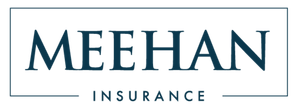Open enrollment is an important period for anyone needing health insurance. It’s your annual opportunity to enroll in, renew, or change your health insurance plan. For many, open enrollment can feel overwhelming due to the variety of options, terms, and potential financial impact. This guide will break down what open enrollment is, how it works, and the key steps to consider when choosing the best plan for you and your family.

What Is Health Insurance Open Enrollment?
Open enrollment is a designated time each year when people can sign up for or make changes to their health insurance plan. For the Health Insurance Marketplace, open enrollment typically runs from November 1 to December 15, although dates can vary by state. Employer-sponsored insurance and Medicare have their own open enrollment periods as well. Outside of this window, you can generally only make changes to your health insurance if you qualify for a Special Enrollment Period (SEP) due to life events like marriage, birth, or job loss.
Why Is Open Enrollment Important?
Health insurance coverage is crucial for financial stability and access to necessary healthcare services. The cost of healthcare continues to rise, and having the right health insurance can save you thousands of dollars if an emergency arises. Additionally, the coverage you select during open enrollment is typically binding for the next year unless you qualify for an SEP, so it’s essential to make an informed choice.
How to Prepare for Open Enrollment
- Evaluate Your Health Needs
- The first step in preparing is to evaluate your current health needs and expenses. Consider any expected medical services, ongoing prescriptions, or potential procedures for the coming year.
- Review Last Year’s Plan and Costs
- Look at your healthcare spending over the past year. Did you pay a lot out of pocket? Were there any services you didn’t use? Did you need care outside of your network?
- Understand the Types of Plans. It’s helpful to know the difference between common plan types:
- Health Maintenance Organization (HMO): Typically restricts coverage to a network of doctors and facilities; referrals may be required.
- Preferred Provider Organization (PPO): Offers more flexibility with out-of-network providers, generally without referrals.
- Exclusive Provider Organization (EPO): Only covers services within a network, but typically no referrals are needed.
- Point of Service (POS): Like an HMO but allows some out-of-network visits with referrals.
Key Considerations When Choosing a Plan
- Monthly Premiums vs. Out-of-Pocket Costs
- A plan with a low monthly premium may seem appealing, but it might come with high deductibles or out-of-pocket costs. Conversely, plans with higher premiums often offer lower deductibles and co-pays.
- Network Coverage
- Check if your preferred doctors and healthcare providers are in-network. Out-of-network visits can be costly and may not be covered by certain plans.
- Prescription Drug Coverage
- For those who rely on prescription medications, it’s crucial to check if they’re covered under the plan’s formulary and at what cost.
- Health Savings Account (HSA) Eligibility
- If you opt for a high-deductible health plan (HDHP), you may qualify for an HSA. Contributions to HSAs are tax-deductible, and the money can be used for qualified medical expenses.
Common Mistakes to Avoid
- Waiting Until the Last Minute
- Rushing the decision can lead to mistakes, like selecting a plan that doesn’t cover your preferred providers or underestimating your yearly healthcare needs. Call Meehan Insurance to start researching early so you have ample time to make an informed choice.
- Overlooking Out-of-Network Costs
- If you need specialized care, check whether your preferred specialists are covered. Out-of-network care can be extremely costly, so it’s essential to understand your plan’s network structure.
- Not Using Available Resources
- Many employers and Marketplace insurers offer tools and resources to help you compare plans. Use online comparison tools, call plan representatives, or consult Meehan Insurance to ensure you’re fully informed.



